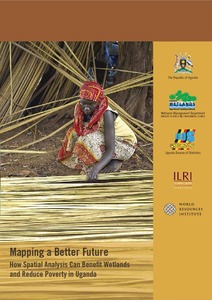Resource information
This publication presents study carried on Ugandan abundant natural wealth. Its varied wetlands, including grass swamps, mountain bogs, seasonal floodplains, and swamp forests, provide services and products worth hundreds of millions of dollars per year, making them a vital contributor to the national economy. Ugandans use wetlands-;often called the country';s ";granaries for water";-;to sustain their lives and livelihoods. They rely on them for water, construction material, and fuel, and use them for farming, fishing, and to graze livestock. Wetlands supply direct or subsistence employment for 2.7 million people, almost 10 percent of the population. In many parts of the country, wetland products and services are the sole source for livelihoods and the main safety net for the poorest households. Sustainable management of Uganda';s wetlands is thus not only sound economic policy, it is also a potent strategy for poverty reduction. Recognizing this, Uganda';s Government was the first to create a national wetlands policy in Africa. Over the past decade, Uganda has also instituted the National Wetlands Information System, a rich database on the use and health of Uganda';s wetlands which in its coverage and detail is unique in Africa. This publication builds on those initiatives by combining information from the wetlands database with pioneering poverty location maps developed by the Uganda Bureau of Statistics. The new maps and accompanying analyses will help policy-makers classify wetlands by their main uses, conditions, and poverty profile and identify areas with the greatest need of pro-poor wetland management interventions. The information generated can also be fed into national poverty reduction strategies and resource management plans. This is an innovative, pragmatic approach to integrating efforts to reduce poverty while sustaining ecosystems which has implications for improving policy-making in Uganda and beyond.



